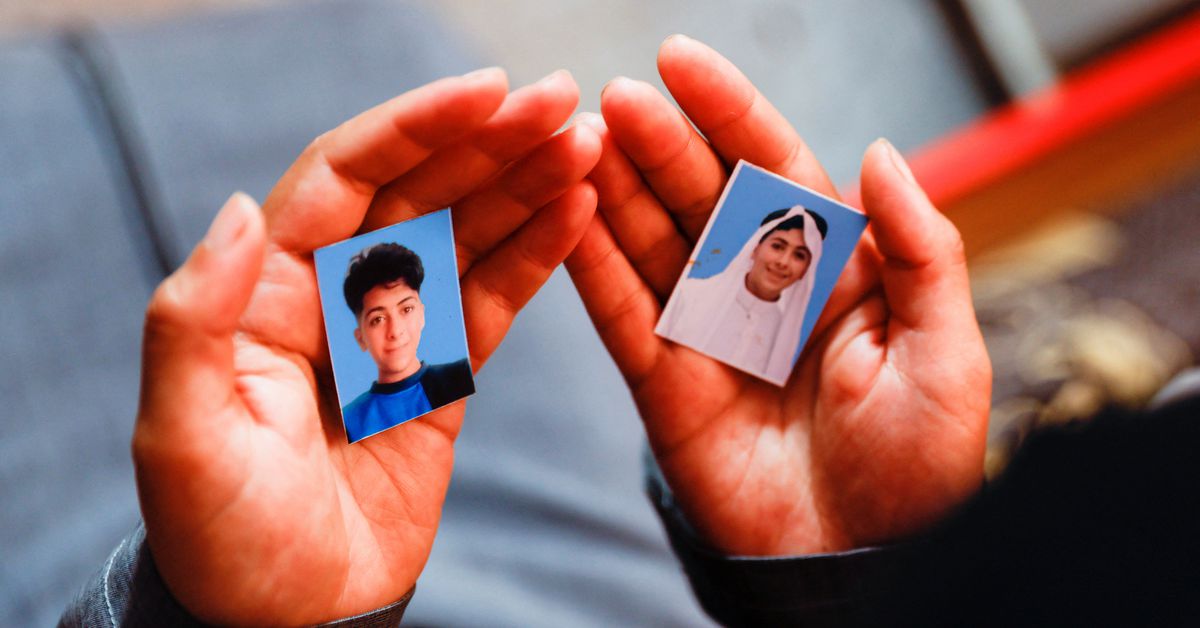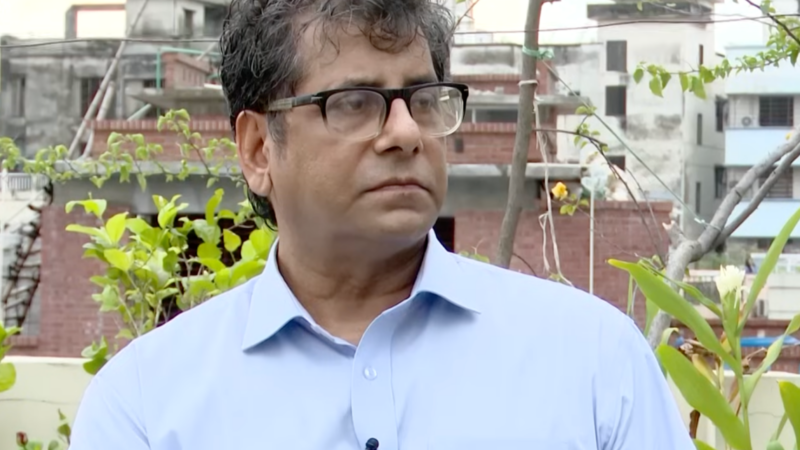Palestinians in Gaza grieve, assess damage following ceasefire

Najwa, mother of 19-year-old Palestinian Khalil Abu Hamada, who was conceived through IVF and killed in a missile strike in latest Gaza-Israel fighting, holds his pictures at her home in Jabalya refugee camp, in the northern Gaza Strip August 9, 2022. REUTERS/Mohammed Salem
GAZA, Aug 9 (Reuters) – For many in Gaza, news of a truce between Israel and the Islamic Jihad after the most serious round of violence in just over a year was bittersweet.
As families aired laundry on blasted walls and sifted through the rubble to salvage whatever documents and furniture they could find, others laid their loved ones to rest.
“My life ended when he was martyred,” said Najwa Abu Hamada, 45, whose 19 year-old son Khalil was killed when he went out into the street outside their home and a car was hit. Her only child, he was born after 12 years of marriage and five failed IVF attempts.
Register now for FREE unlimited access to Reuters.com Register
“I promised him that joy will never find its way into my heart anymore,” she said.
At least 44 people, including 15 children, were killed in 56 hours of violence that began on Friday when Israeli air strikes hit a senior commander of the militant Islamic Jihad movement. More than 360 people were wounded in raids that continued all weekend, among them 151 children and teenagers, according to Gaza health officials.
Israel said it launched the air strikes as a pre-emptive operation against an imminent attack by the Iranian-backed Islamic Jihad movement, targeting Islamic Jihad commanders and arms depots and doing all it could to limit civilian casualties.
In response, Islamic Jihad fired more than 1,000 rockets towards Israel, sending residents of southern and central areas, including major cities like Tel Aviv fleeing to bomb shelters.
Israel’s Iron Dome air defence system prevented any serious damage or casualties on its territory but there was no such protection for blockaded Gaza where some 2.3 million people live on a patch of 365 square kilometres (140 square miles).
“We heard an explosion, we were shocked. When we got out, we saw our children dismembered,” said Wessam Nejim, whose four nephews were killed on Sunday in Jabalia refugee camp, the largest of eight camps in Gaza that are home to Palestinians whose families fled or were expelled from towns and villages during the 1948 war of Israel’s creation.
“A child only four years old, why would he be targeted?”
The Israeli military said it was looking into the incident, which came a day after four children were killed in the same area by what Israel said was an Islamic Jihad rocket that veered off course and plunged to the ground shortly after being fired.
According to Israeli officials, around 20% of the rockets fired from Gaza misfired, causing extensive damage and casualties in the strip.
That account was rejected by both Islamic Jihad and Hamas, the militant group that governs Gaza, which said all the Palestinian deaths were caused by Israeli strikes.
“This is part of the Zionist mental warfare against our people, to create division between the resistance and the people it defends,” said Islamic Jihad Spokesperson Musab al-Braim.
As well as the casualties, at least 40 families were displaced as a result of the fighting and some 650 housing units sustained damage, according to the United Nations Office for the Coordination of Humanitarian Affairs.
For Muatasem Shamalakh, 28, the house he lived in, which was partially damaged in an earlier war in 2014, was now completely destroyed.
“Where can we go now?” he said.
Register now for FREE unlimited access to Reuters.com Register
Reporting by Nidal al-Mughrabi; Additional reporting and writing by Henriette Chacar; Editing by James Mackenzie, Alexandra Hudson
Our Standards: The Thomson Reuters Trust Principles.






